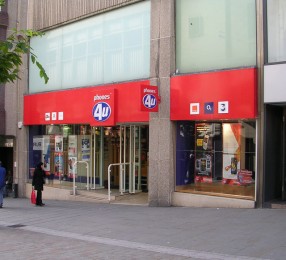 The Advertising Standards Authority (ASA) has attempted to show that it has a backbone.
The Advertising Standards Authority (ASA) has attempted to show that it has a backbone.
The toothless watchdog has released its annual report which it claims highlights its “big five” misleading advertising priorities, including free trials, pricing, daily deals, testimonials and health claims and what its been doing to tackle them.
The ASA said that last year 70 percent of its cases were about misleading advertising. It said making sure that responsible advertising isn’t being under-cut by the irresponsible helped get a fair deal for consumers and competitors.
It added that last year it received 31,298 complaints about 18,990 ads, while its work led to 3,700 ads being changed or withdrawn. It also dealt with 6,273 complaints about 5,338 online ads, which made up 28 percent of its workload
The moves will do nothing to appease critics of the watchdog, which last year was described as “toothless” and “feared as much as a monster under the bed.”, after it gave a company, which repeatedly violated ad terms, a tiny slap on the knuckles.
And it seems it’s continuing with its softly, softly approach, this week partly upholding two separate complaints about DSG Retail and Plusnet.
DSG was given a slap on the wrist after the ASA received two complaints about the company. It said two issues were investigated, one of which was upheld and the other not upheld.
The complaints centred around a TV and a press ad for tablets and e-Readers. The TV ad for PC World featured various tablets and e-Readers. The voice-over stated “At Currys PC World, get up to £80 Cashback on tablets and e-readers when you buy a case too”. At the same time there was also a large bauble that displayed text that stated “up to £80 Cashback”. On-screen text also stated “Conditions apply. Excludes Ipad”.
Images of the Blackberry Playbook, Google Nexus and Samsung Note appeared separately on the screen, each offering cashback options.
The press ad also stated “up to £80 Cashback on tablets and eReaders when you buy any case”. The ad featured a number of devices which detailed the price of the item “after cashback”.
The ad included an image of a Kindle. Text stated “£10 Cashback* 6” eReader The new Kindle features built in Wi-Fi allowing you to download a book in 60 seconds and weights less than 170grams. £59 AFTER CASHBACK* £69 payable in store + cost of case”. Text at the bottom of the ad stated “*when you buy a case”. The ad also included a box, which include the text “the largest range of tablet and eReader cases on the high Street From only £9.99”.
Two complainants challenged whether the TV ad was misleading because it did not make clear the extent of the consumers’ commitment in order to obtain the advertised discounts.
The press ad was queried for the same reason. DSG tried to get clever in its defence claiming that by definition, a ‘misleading advert’ had to be one that created a false impression and that an ad could not be considered misleading by not including a piece of information that a consumer may wish to know.
It said the absence of such information would only cause an ad to be misleading if it subsequently created a false impression and believed a case for a false impression had not been set out by the ASA.
However the ASA fought back claiming that an ad did not need to contain false information or create a ‘false impression’ in order for it to be misleading and that it should be considered misleading if it omitted significant information about the featured offer that would affect a consumer’s informed decision about whether or how to buy the product.
It let the company off the press ad but ruled the TV ad should not be shown again.
Over in the broadband camp Plusnet faced a similar fate after airing a TV ad claiming that everyone was “a winner with the PlusNet broadband half price sale.”
It promised unlimited broadband from £4.99 a month with the smaller text claiming “with £13.99 monthly line rental” and “new customers only; £8.49 a month for customers in certain areas. £5.99 router delivery. 12 month minimum term.”
However, viewers weren’t impressed. One challenged whether the on-screen text was legible, while a second viewer challenged whether the ad was misleading, because the offer did not apply to “everyone”.
Other viewers challenged whether the claim “All broadband’s [sic] half off” was misleading, because they understood the offer applied only to packages that included line rental whereas broadband-only services remained at full price.
PlusNet said it understood the on-screen text was of the required minimum height. It said the offer was available to existing customers as well as new customers so the on-screen text would be amended to state “£8.49 a month for customers in certain areas. £5.99 router delivery. 12 month minimum term.
The ASA agreed that the TV ad conformed to its code.
However it didn’t like Plusnet’s claim that everyone was a winner, claiming that although the offer was in fact available to existing customers it considered the inclusion of that condition, which was in any case contradictory, in the ad was likely to lead existing customers to believe they could not benefit from the offer and that they might miss out on the promotional price as a result. It therefore concluded that the ad was misleading.







